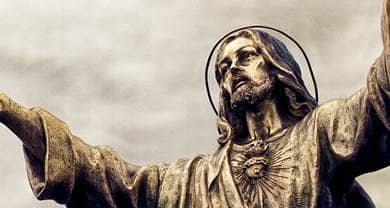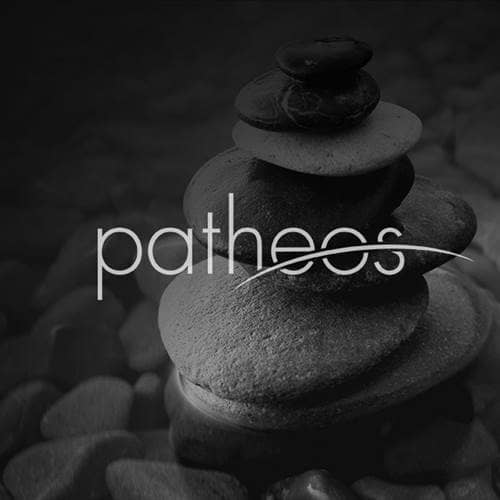- Trending:
- Pope Leo Xiv
- |
- Israel
- |
- Trump
- |
- Social Justice
- |
- Peace
- |
- Love

RELIGION LIBRARY
Lutheran
Rites and Ceremonies
The most obvious rite in Lutheranism, as in most forms of Christianity, is the Sunday worship service. Sunday services include many rituals: praying, hymn singing, communal readings by the congregation, blessings, and benedictions. Even scripture reading and sermons are highly ritualized. Yet, of these rituals, two more are particularly important: the sacraments of baptism and the Lord's Supper.
It is in the sacraments that some of the most important of Luther's reforms are to be found. Certainly for congregants the changes he instituted, which flowed from his theology, would have affected their lives profoundly. A sacrament is an action in which God's grace is especially present. Roman Catholics have seven: baptism, confirmation, confession, Lord's Supper, marriage, ordination, and last rites. For a number of reasons, Luther cut this list down to the two sacraments of baptism and the Lord's Supper.
Luther believed that, to be a sacrament, a ritual had to be explicitly instituted for the church by Jesus in the gospels. Jesus does tell his disciples to go and baptize in the name of the Father, the Son, and the Holy Spirit (Matthew 28:19), and at the Last Supper as he breaks bread he tells them to "do this in remembrance of me" (Luke 22:19). Other rituals, while important, do not meet these criteria. They are rites but not sacraments. Rites that are for specific occasions, such as marriage or ordination, take place during "occasional services."
Along with baptism, the Lord's Supper was one of the rituals most fought over during the Reformation, dividing not just Catholics and Protestants, but also Protestants from each other. The Catholic Church taught that it was a re-enactment of Christ's sacrifice. Furthermore, they taught that the bread and wine (the "elements") became Jesus' body and blood. Thomas Aquinas used Aristotelian language of substances and accidents to speak about this-the substance or essence of the bread and wine changed into the substance of Jesus' body, but the accidents (taste, smell, etc.) remained the same. Finally, the priests normally ate the bread and drank the wine, but offered only the bread to their congregations. (This was in part to emphasize that all of Jesus was present in each part of the elements, and in part to prevent spelling any of Christ onto the floor.)
Luther insisted that Jesus' sacrifice on our behalf had been made once and for all, and need not be repeated. God offered divine grace to us in the ceremony; the priest was not offering a sacrifice to God. He therefore no longer called it a "mass," and celebrated it on a "table" instead of an "altar." ("Mass" comes from the Latin word "missa" or dismissal, which occurs in the closing phrase of the Latin mass. For Luther it connoted a priest re-performing the sacrifice of Jesus-in other words, a human offering to God. For Luther, this was the very symbol of misguided medieval theology.) He argued that the Lord's Supper was a testament, which means a promise made by someone about to die. Jesus promised us forgiveness before dying. Therefore he never allowed the Lord's Supper to be celebrated without a sermon-it did not mean anything without the spoken promise.
The Lutheran minister stands behind the table facing the congregation so they can see and hear what he or she is doing. Luther believed that the body and blood of Jesus were physically present with the elements in the celebration of the Lord's Table. But he rejected language of substances because it came from Greek philosophy and was un-biblical. (Catholics describe the miracle of the bread and wine becoming the body and blood of Jesus with the phrase "transubstantiation," which means that the substance of the bread leaves and the substance of Jesus takes its place, while the "accidents" (taste, texture, etc.) remain the same.) Without being able to offer any philosophical explanations, he trusted the words of Jesus as he held up the bread, "This is my body . . . ." For Luther, the miracle of real presence did not require an additional miracle that the essence of the bread left. The bread and wine remain bread and wine, in addition to being the body and blood of Christ. The Lutheran formula that captures this doctrine is that Christ is "in, with, and under" the elements. (Some people call Luther's formulation "consubstantiation," because for Luther the bread and the body are both present. While both are present for Luther, he would reject the term because of his rejection of the philosophical category "substance.") Luther argued that there was no biblical justification or authority from early church practice for offering the laity only the bread and not the wine. He offered the Lord's Supper in both kinds.
Luther did not believe that baptism was strictly necessary for salvation-God could save an unbaptized infant if God wanted. He ended the practice of emergency baptisms by midwives if a child was born sick and no priest was available. (Along with shutting down convents in which women could take on leadership roles, the restriction on midwives had the side effect of stripping away one important source of power available to women in the 16th century.) Nevertheless, because we are fallen beings, we needed not just oral promises but physical manifestations of God's grace. When he felt challenged by the devil Luther calmed himself by remembering that he was baptized. Luther was challenged by some radical reformers who argued that, if salvation was through faith alone, only adults who could understand sin and forgiveness should be baptized. Luther continued to practice infant baptism as the ultimate sign that salvation was entirely God's matter, and had nothing to do with human actions, including humans' ability to understand.










